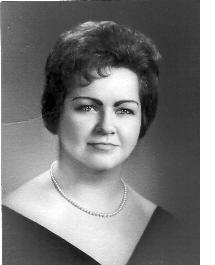Stories
She said her name was Joayne O'Connell and that we had met at a party the night before. "What party?" I asked. She then described a party where I had not gone and proceeded to say, "but anyway I would like to come over."
I was already in bed and there was a blizzard outside. On the other side of our one-room student apartment, my roommate was already asleep. But always ready for an adventure, I said, "OK."
She arrived by taxi and promptly climbed into bed with me and we made love. And then she left as mysteriously as she had arrived. It was 1962. No one was yet worried about AIDS. I was a first-year graduate student at Yale. Joayne was overweight and not very attractive by contemporary standards (might have been a model for Rubens, however, in another era), and I did not know any women yet in New Haven.
In the months that followed, we made love, went to a concert or two, and talked - lots. She began to bring me poems, wonderful poems, full of strong rhythms and images and ideas. She wrote them with a beautiful handwriting script. At the time, I assumed they were her own. It is only recently with the availability of Internet search engines for poetry that I was able to identify many of the poems as those of well-known poets such as Louis Untermeyer.
She told me her parents were extremely wealthy but that she would not come into her inheritance for another few years. To prove the point we went everywhere at her expense in taxis around New Haven and even a night of lovemaking at the famous Plaza Hotel in New York.
 Then, one day she said, "What shall we do with the millions of dollars that I'm going to inherit?" I was entranced. I began to dream with her. Deeply affected by the Cuban missile crisis that had recently occurred and the vision that the world could be destroyed in a nuclear holocaust, we dreamt up a scheme for world peace. We would set up radio stations for peace that provide the communication for a global movement for nuclear disarmament.
Then, one day she said, "What shall we do with the millions of dollars that I'm going to inherit?" I was entranced. I began to dream with her. Deeply affected by the Cuban missile crisis that had recently occurred and the vision that the world could be destroyed in a nuclear holocaust, we dreamt up a scheme for world peace. We would set up radio stations for peace that provide the communication for a global movement for nuclear disarmament.
I was so caught up in our fantasy that I put aside all doubts about Joayne and whether her story was true, despite vague warnings from my roommate and classmates at the Yale Psychology Department.
Then one night in the spring of 1963 a call came from a stranger. "You don't know who I am, but I have seen you with Joan and I have to warn you. She is an imposter." Then he hung up. I knew deep down that he said was true, but found it difficult to destroy the fantasies that we had created. Finally, in the kitchen of the little student apartment, I confronted her with this revelation. She grabbed a butcher knife and came after me - seriously! Fortunately I am strong and disarmed her. She bolted and I followed her to my lab where she went for the scalpels to slit her wrists. Again I had to overpower her to stop it, and we agreed to part without violence.
After that episode, I refused to answer her phone calls and she disappeared from my life. Years later I tried to find out what happened to her and no one knows. The people living in the modest house where her parents lived have no idea what happened to them. Her poems remain with me and are brilliant. I put their words on the Internet search functions from time to time, hoping that she survived and published her poems. Some of "her" poems turn out to be those of others, but for many of them, I can find no trace.
But the fantasy did not disappear. I turned it into a novel, called originally By What Ways and later, just Peace. And decades later, at UNESCO, I founded the Culture of Peace News Network (CPNN) on the plan previously worked out with Joayne, but using the newly-invented Internet instead of radio.
Years later, another woman whom I loved listened to my story and berated me. "Typical man, you exploited her, and she gave you far more than you could ever give her." I could only reply, "What you say is true."
The following sonnet that she brought to me seems to sum it up. Since I cannot find it through google on the internet, perhaps it was really written by her.
|
There was a moment when the world was lost, And nothing but our own delight was won, When both our fortunes were together tossed Into a sea of hope. No moon or sun Could rise or set, no bitter wind could blow, No evil thing could touch the magic ring Around our hearts. And now we surely know The music to the words we try to sing. So we have met. The world moves on again. The sun still shines, the moon will rise tonight. Our paths that blended, now diverge - as when A sunny country lane forks left and right. The world is still the same. And you and I Alone are changed until the day we die. |
 |
Stages
1986-1992
Fall of Soviet Empire
1992-1997
UNESCO Culture of Peace Programme